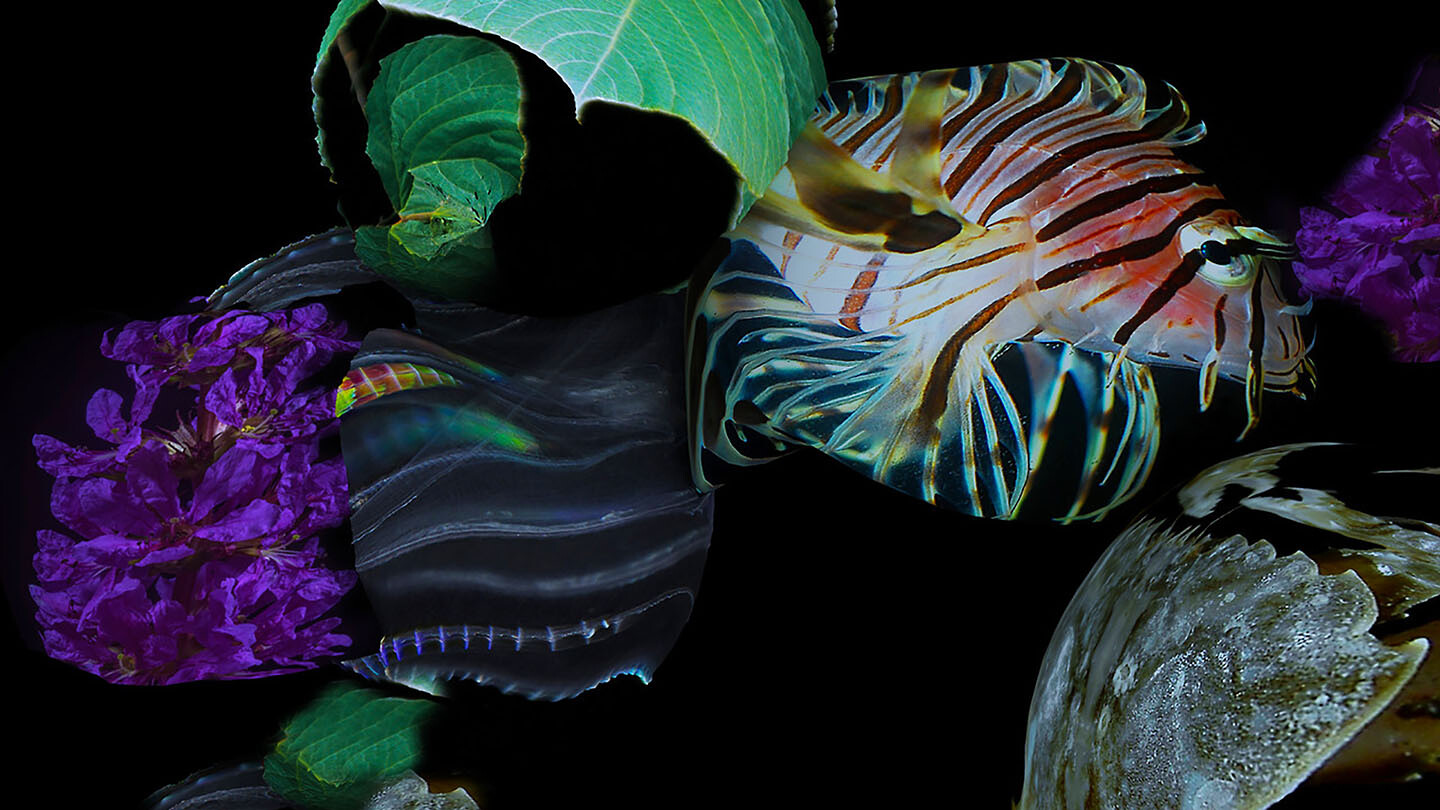Art for a Planet in a State of Emergency
June 13–October 6, 2019
Centre for Contemporary Creation
Pº de la Chopera, 14
28045 Madrid
Spain
Hours: Tuesday–Friday 5–9pm,
Saturday–Sunday 12am–9pm
T +34 913 18 46 70
info@mataderomadrid.org
Twitter / Facebook / Instagram / #Ecovisionarios / #Ecovisionaries / #InstitutoMutante / #MutantInstitute
Initiated in 2018 as a joint project appearing across four institutions—MAAT (Lisbon), Bildmuseet (Umeå), HeK (Basel) and LABoral (Gijón), in collaboration with Royal Academy (London)—Eco-Visionaries has a new presentation at Matadero Madrid, with an expanded selection of projects and artworks that highlight the future of interspecies relationships.
Avoiding a narrow emphasis on climate change, Eco-Visionaries is a manifesto-exhibition focusing on the impacts of rapidly changing ecological conditions. Global warming, extreme weather events, rising sea-levels, drought in one location while another gets flooded, are some of the ways in which this shift is felt on a day-to-day basis. These natural phenomena join environmental crises produced by the depletion of resources, the continued use of fossil fuels, the impacts of mass-consumption, and varied forms of contamination, including plastic-ridden oceans and a declining biodiversity. Together, these phenomena are increasingly recognised as the expression of a new geological era marked by human action, which many now call the Anthropocene.
In face of this condition, what new conceptions and systems of thought might a rising ecological awareness inspire? If ideals of reason, science and technological progress arising from the Enlightenment are now directly linked to environmental destruction, where do we head from here?
Eco-Visionaries asks how artists, architects, designers and other cultural practitioners are inquiring into such ecological transformations, by producing a critique of their causes, raising awareness on their less visible aspects, and anticipating alternative visions on how to respond and adapt to their consequences. In the subjective, unstable images of an environmental crisis captured by the works of art, architecture and new media selected, we seek to recover a sense of hope in the future, rescued from the monsters of reason that emerged out of the Enlightenment’s dreams of human progress.
New projects at Matadero add to an extensive list of more than 70 artworks already reunited in previous exhibitions, as well as in the book by the same name published by Hatje Cantz. In this new presentation, 40 participants alternate between critical inquiry and visionary optimism across four sections: disaster, extinction, co-existence and adaptation.
Curators
Pedro Gadanho and Mariana Pestana with Matadero Madrid (Rosa Ferré/Ana Ara)
Eco-Visionaries artists
Allora & Calzadilla, Nelly Ben Hayoun, Ursula Biemann/Paulo Tavares, Zheng Bo, C+/In the Air, Carolina Caycedo, Emma Charles, Fernando Cremades, Alexandra Daisy Ginsberg, Darlene Farris-Labar, Paula Gaetano Adi, Tue Greenfort, Terike Haapoja, HeHe, Husos, Andrés Jaque, Kiluanji Kia Henda, Jakob Kudsk Steensen, Gabriel Ruiz Larrea, Pedro Neves Marques, Next Nature Network, Eva Papamargariti, SKREI, Superflex, Jenna Sutela, Unknown Fields Division, Ana Vaz/Tristan Bera, Pinar Yoldas
Within the framework of Eco-Visionaries, Matadero is proposing the Mutant Institute of Environmental Narratives [Instituto Mutante de Narrativas Ambientales - IMNA] as an initiative to promote projects that help to create narratives that go beyond traditional ecological discourses through artistic practices and in connection with other areas of knowledge such as journalism, the humanities and sciences. The Institute claims that the current global challenges are as much cultural and political as they are scientific and technological. Calling for a new responsibility pact vis-à-vis future generations, through the analysis of the imaginaries and desires that continue to hold our society in thrall, IMNA will be promoting the use of fiction and other strategies based on interdisciplinarity.
Among other projects, IMNA proposes a Cyborg Garden for the Matadero complex as an experiment in adapting to climate change in urban environments. The Centre will become a case study for applying nature-based solutions while at the same time making Matadero a more pleasant and cooler place.
IMNA curator Amanda Masha Caminals
Cyborg Garden curator elii [oficina de arquitectura]
With the collaboration of itdUPM (Technical University of Madrid)/Madrid City Council (Environment and Mobility Area)
IMNA/Cyborg Garden artists
Paula Nishijima, Robertina Šebjanič, Fito Conesa
uh513 [María Castellanos/Alberto Valverde], TAKK [Mireia Luzárraga/Alejandro Muiño], Orkan Telhan, Double Happiness [Joyce Hwang/Nerea Feliz], Rachel Armstrong/Rolf Hughes/Pierangelo Scravaglieri/Ioannis Ieropoulos


